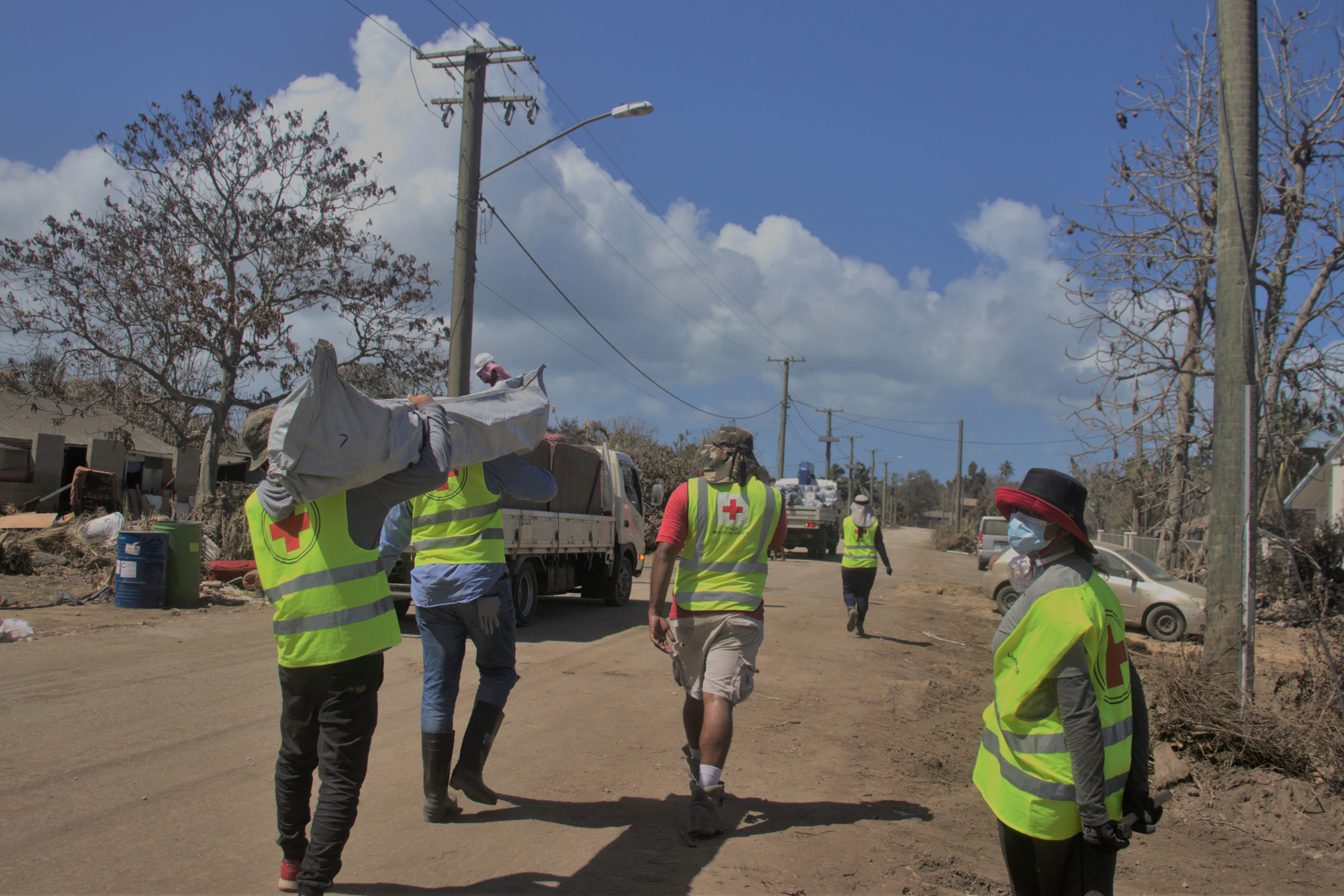2 Japanese planes fly more aid to Tonga after volcanic blast
Two Japanese aircraft have left Australia to deliver more vital aid to Tonga as the Pacific nation deals with the aftermath of a volcanic eruption and tsunami

Your support helps us to tell the story
From reproductive rights to climate change to Big Tech, The Independent is on the ground when the story is developing. Whether it's investigating the financials of Elon Musk's pro-Trump PAC or producing our latest documentary, 'The A Word', which shines a light on the American women fighting for reproductive rights, we know how important it is to parse out the facts from the messaging.
At such a critical moment in US history, we need reporters on the ground. Your donation allows us to keep sending journalists to speak to both sides of the story.
The Independent is trusted by Americans across the entire political spectrum. And unlike many other quality news outlets, we choose not to lock Americans out of our reporting and analysis with paywalls. We believe quality journalism should be available to everyone, paid for by those who can afford it.
Your support makes all the difference.Two Japanese aircraft left Australia on Monday to deliver more vital aid to Tonga as the Pacific nation deals with the aftermath of a volcanic eruption and tsunami.
The Japanese Lockheed C-130 Hercules and Kawasaki C-2 left the Royal Australian Air Force Base at Amberley in Queensland state to make the 3,300-kilometer (2,050-mile) journey east to the islands that were devastated by the Jan. 15 twin disasters, the Australian Defense Department said in a statement.
“Australia proudly joins Japan and other Pacific Island countries working along side the people of Tonga,” the statement said.
Aid flights from Australia, Japan and New Zealand also carried food, water, medical supplies and telecommunications equipment to Tonga over the weekend.
Because of the COVID-19 risk to a nation that has not had a local outbreak, aid flights are landing, offloading supplies, then leaving without contact with locals on the ground. The goods are left for 72 hours to reduce the infection risk before they are unpacked.
The main airport runway has been cleared of ash spewed when the nearby Hunga Tonga Hunga Ha’apai volcano erupted. The explosion set off a Pacific-wide tsunami that smashed boats in New Zealand and caused an oil spill in Peru.
Cleanup efforts were going smoothly, with the Tongan government and military officials working together, Australian Minister for International Development and the Pacific Zed Seselja said on Sunday.
Ships from the U.S. and Britain were on their way. HMAS Adelaide, an Australian navy ship with helicopters on board as well as engineers and a 40-bed hospital, is expected to reach Tonga by Friday.
The ship can generate electricity and purify water.
A lack of clean water was a priority because local supplies have been damaged by layers of volcanic ash and salt water. Red Cross teams on the ground reported widespread stagnant pools of salt water that were dumped by the tsunami, polluting the clean drinking water sources of tens of thousands of people, said Katie Greenwood, the Pacific head for the International Federation of Red Cross and Red Crescent Societies.
On Saturday, the Japanese government said a Self-Defense Forces C-130 aircraft arrived in Tonga with three tons of drinking water. That followed another Japanese flight on Friday.
The death toll has been limited, with only three deaths confirmed in Tonga so far.
Three of Tonga’s smaller islands suffered serious damage from tsunami waves. The majority of Tongans live on the main island of Tongatapu, where about 50 homes were destroyed and coastlines strewn with debris.
U.N. humanitarian officials reported that about 84,000 people — 80% of Tonga’s population — have been impacted by the eruption.
The tsunami severed the single fiber-optic cable that connects Tonga to the rest of the world, leaving many unable to connect with loved ones abroad. Since then, satellite communication have improved and Tonga’s telecoms operator, Digicel, said it had been able to restore international call services to some areas.